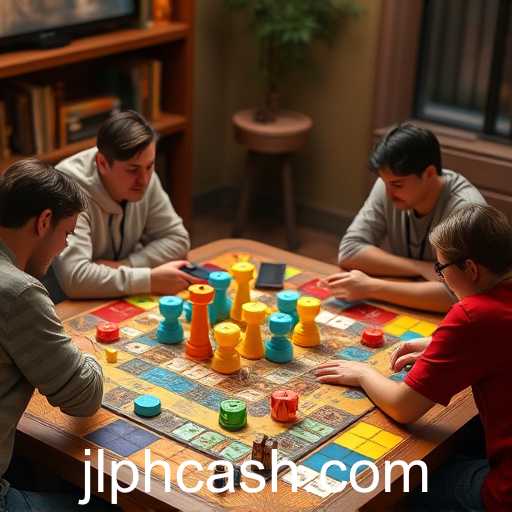In recent years, the board game industry has blossomed into a vibrant arena where creativity intersects with social interaction and strategic thinking. Among the myriad of categories on popular gaming websites, 'Board Games' stands out not only for its timeless appeal but also for its ability to continuously evolve. One intriguing development within this category is the emergence of 'phcash' as a prominent keyword, catalyzing a new wave of interest and innovation.
Board games have long served as a vehicle for bringing people together, whether it's a family gathered around the kitchen table or friends enjoying a lively game night. This interactive form of entertainment is unique in its tactile nature and the face-to-face engagement it encourages. However, as digitalization seeps into every aspect of our lives, board games publishers and enthusiasts alike are seeking novel ways to merge the charm of traditional board games with the possibilities offered by technology.
Herein lies the significance of 'phcash'. Though its precise definition within the gaming context is still evolving, 'phcash' symbolizes a push towards integrating digital elements into physical gaming experiences, often utilizing technology to enhance gameplay, rewards, and community building. Increasingly, game companies are linking physical board games with apps, creating hybrid models that allow players to track scores digitally, access additional content, and even connect with other players globally.
The impact of 'phcash' on board gaming is multifaceted. On one hand, it offers traditional game manufacturers an opportunity to innovate. Consider games that once relied solely on printed cards and dice now employing augmented reality features or NFC technology to unlock new game dimensions. On the other, it proposes a challenge to maintain the tactile, face-to-face interaction that is the hallmark of board games.
Moreover, 'phcash' encapsulates the trend of incorporating cryptocurrency principles into game design, creating an ecosystem where players might earn digital rewards or currencies through gameplay, thereby democratizing access to in-game enhancements and expanding the economic interaction within gaming communities.
Ultimately, the incorporation of 'phcash' reflects a broader trend in gaming where community engagement, adaptability, and resourcefulness come to the forefront. Enthusiastic communities around board games are using it as a platform to suggest modifications, develop customized content, and even crowdfund new ideas. This interaction between creatives and the gaming community not only diversifies the types of board games being produced but also ensures the continued relevance and appeal of this beloved pastime.
In conclusion, while 'phcash' may be a nascent aspect within the board games landscape, its potential to influence how we design and interact with games is immense. As game developers and players navigate this evolving terrain, the possibilities for innovation seem endless, promising a future where board games are not just played but experienced in enriching new ways.








